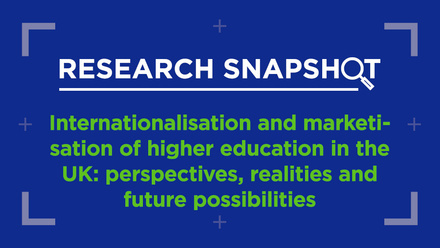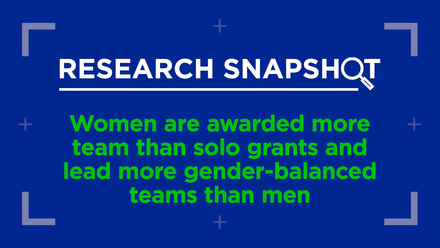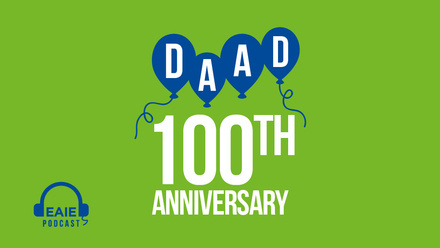Agile leadership: how to boost academic engagement in internationalisation

The question of how to get academic staff engaged with internationalisation is a much-debated issue. Recent in-depth interviews I conducted with academics in the Netherlands, during my PhD research at the University of Groningen, have given us some new insights, revealing both tensions that need to be managed and potential drivers of internationalisation that need to be harnessed.
With the evolution of internationalisation from being exclusively an international office activity to being an institution-wide interest, all staff and students have become involved. We therefore need to look beyond our international office to our wider organisational context, which is complex and full of tensions. How do these tensions affect academic staff as key stakeholders in curriculum internationalisation? What can our new roles be? How can we engage and enable these staff?
Our organisations are public, professional or pluralistic service organisations with specific characteristics from which potential tensions can arise. First, our professional workforce is highly skilled but also deeply cherishes autonomy. Second, multiple values need to co-exist and be aligned with institutional logic and power. Third, the services we offer are aimed at achieving quality and reputation, which are rather intangible objectives. Accordingly, much power, expertise and culture are informal or hidden.
Given that internationalisation is a concept that is open to multiple interpretations and based on different values and rationales, you can imagine how internationalising a higher education institution has become a challenging process in this complex organisational context. Our key challenge is to develop an appropriate approach to the process that incorporates agile leadership.
Our key challenge is to develop an appropriate approach to the process that incorporates agile leadership.
The tensions
Many studies have suggested that academic staff lack interest and commitment, but the interviews I conducted reveal a rather different picture. The multiple perceptions and experiences of internationalisation that the academics expressed were clearly related to their diversity in backgrounds, expertise and values. Their assumed lack of interest turned out instead to be a lack of shared understanding due to insufficient conversations and activities around internationalisation.
Internationalisation is primarily discussed as a problem or in terms of deficits of ‘foreign’ students and staff. Or it is considered as having been achieved already in terms of numbers of international students, it is taken for granted or it is not reviewed at all. Generally, academic staff are not involved in debates about the potential value of internationalisation and the sharing of good practice and instructions on how to internationalise.
On top of all this, they perceive a lack of resources. With increased global competition and decreased funding, they constantly face constraints in terms of time, money and support. Many academics feel a lack of recognition for their teaching compared with their research obligations, let alone appreciation for teaching in an international context. The COVID-19 pandemic has only intensified these tensions. As expressed by one staff member: "We are at the edge of the cliff; we are merely surviving."
Beyond this overall lack of money, time and recognition, academic staff often lack specific knowledge, skills and leadership. For them, having trained in a specific discipline or for a particular profession, it is not so clear what knowledge and skills are actually required for internationalisation. They also feel that they lack ambassadors or role models to guide and lead them.
Furthermore, a certain awareness is needed first. As another academic phrased it: "I have been converted in a personal, conscious growth process from a sceptic into an enthusiast." This disclosure illustrates how internationalisation is a continuous development process. Despite ambitious strategic plans, in educational practice internationalisation is still perceived as not explicit or concrete. These academics experience internationalisation very much as an ‘add-on’ process, creating extra work on top of all other priorities and pressures. Plus, it is not so clear to them what to do and how to do it. Consequently, they tend to ‘mind their own business’.
The drivers
Surprisingly, despite all these tensions, most of the academics I interviewed still revealed a strong intrinsic motivation for internationalisation. Some staff even called themselves "believers" or the "motors" of internationalisation – "people running for it and willing to take a risk".
Many staff are driven by the potential value they see for their students, their programmes and for themselves. Within their span of control and with their specific expertise, they try to internationalise.
Many staff are driven by the potential value they see for their students, their programmes and for themselves.
They were able to demonstrate examples of amazing individual actions involving innovative courses, projects and other activities. At the same time, successful internationalisation is often limited to this individual enthusiasm and specific projects. The key challenge remains how to move internationalisation to the next level with a more institutional approach.
Agile leadership
I propose that agile leadership, based on a change approach, can be the key to transforming tensions into opportunities. This means smart, tailor-made leadership requiring contextual awareness, reflection and courage; the kind of leadership that is appropriate in a specific context, at a particular point in time. It demands a proactive attitude as well as quick responses and improvisation. Academic voices from different disciplines in the study I conducted illustrate how this type of leadership can be effective in helping us to manage organisational tensions and internationalise in a feasible, meaningful way.
In summary, our organisational context presents all of us with many tensions on the one hand and many potential drivers on the other. We can be ‘believers’ and ‘motors’, engaging and enabling others when it comes to internationalisation. With some bravery, smart thinking and effective actions, we can develop new strategies based on agile leadership. Some first steps to start with include the following:
In summary, our organisational context presents all of us with many tensions on the one hand and many potential drivers on the other. We can be ‘believers’ and ‘motors’, engaging and enabling others when it comes to internationalisation. With some bravery, smart thinking and effective actions, we can develop new strategies based on agile leadership. Some first steps to start with include the following:
- Identify the main tensions for your specific stakeholders.
- Find their personal, institutional or external drivers.
- Connect these main tensions and drivers to specific factors or actors. For example, experiences with internationalisation, international contacts and networks, specific resources and role models, and external funding.
- Use the drivers to deal with the tensions. For example:
o Create conversations about internationalisation that go beyond simply identifying problems.
o Help establish communication strategies and platforms to share good practice.
o Share your specific expertise.
o Encourage working in cross-functional teams to share knowledge and perspectives.
o Bring relevant external expertise into your institution to support your efforts.
o Create or assign ‘ambassadors’ as role models for internationalisation.
o Make internationalisation explicit and concrete in strategies and policies.
This way, we can all be agile leaders in this challenging process of change, driving the exciting next phase of internationalisation. Good luck!
This article was informed by PhD research about curriculum internationalisation as a dynamic resource-based organisational change process, conducted by Franka van den Hende at the Centre for Internationalisation of Education at the University of Groningen in the Netherlands.






